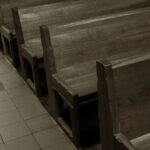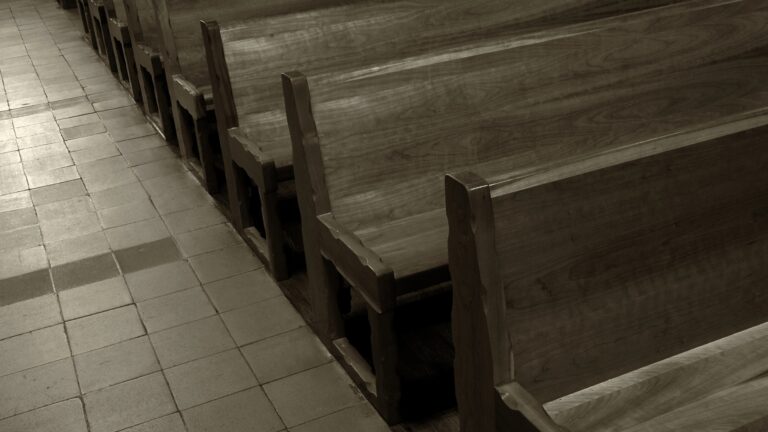On Sunday, October 22, 1939, C.S. Lewis preached a sermon in the Church of St. Mary the Virgin called “Learning in War-Time.”
“How can we continue to take an interest in these placid occupations when the lives of our friends and the liberties of Europe are in the balance?” he asked. “Is it not like fiddling while Rome burns?”
Before he answered, Lewis added a side note: Christians must realize that we face a question — the reality of heaven and hell — that makes the questions of war relatively unimportant. We must ask “how it is right, or even psychologically possible, for creatures who are every moment advancing either to heaven or to hell, to spend any fraction of the little time allowed them in this world on such comparative trivialities as literature or art, mathematics or biology. If human culture can stand up to that, it can stand up to anything.” We live everyday under the shadow of eternal issues, and not just in a time of crisis. “Human culture has always had to exist under the shadow of something infinitely more important than itself.”
We live everyday under the shadow of eternal issues, and not just in a time of crisis.
Life is never completely normal. A time of crisis only aggravates what is always true. If we postponed our quest for knowledge and beauty in a time of difficulty, we never would have begun.
But then Lewis answered the question. “Neither conversion nor enlistment in the army is really going to obliterate our human life,” he said. Christians and solders are still men … You are not, in fact, going to read nothing, either in the Church or in the line: if you don’t read good books you will read bad ones. If you don’t go on thinking rationally, you will think irrationally. If you reject aesthetic satisfactions you will fall into sensual satisfactions.”
The war is a finite object, he continued, and it will therefore never command our full attention. In any case, we couldn’t suspend our normal human activities even if we wanted to do so. As much as possible, we must fulfill our own vocations. “A mole must dig to the glory of God and a cock must crow.” And we too must do our own part.
“To be ignorant and simple now — not to be able to meet the enemies on their own ground — would be to throw down our weapons, and the betray our uneducated brethren who have, under God, no defense but us against the intellectual attacks of the heathen,” he preached.
We must know the past in order to speak into the present. The learned life is a duty, even in a time of crisis. “Do not let your nerves and emotions lead you into thinking your present predicament more abnormal than it really is.” We’ve always faced rivals to our work, so we must stay at it.
After all, Lewis concluded, crisis reminds us that we were made for more. “If we had foolish un-Christian hopes about human culture, they are now shattered. If we thought we were building up a heaven on earth, if we looked for something that would turn the present world from a place of pilgrimage into a permanent city satisfying the soul of man, we are disillusioned, and not a moment too soon.”
Lessons from Lewis
I appreciate these reminders from Lewis:
We’re always living on the precipice. Always. Lewis reminds us that our current crisis isn’t that unusual. A war or pandemic doesn’t change that. It only accentuates what’s always true
The eternal questions still matter. We face questions about what to do or not do in the immediate crisis, but these don’t supplant the questions that matter most now and always, questions of eternal life.
Don’t let the crisis demand all of your attention. The current crisis is finite. Because of this, It can’t consume all of our attention. Let’s make sure we talk and think about infinite objects that are worthy of our attention at least as much as we do the virus.
Fulfill your vocation. Whatever God has given you to do, do in this current crisis. Your work still matters. Let’s not concede ground by neglecting our work if we have any way to continue it.
How can we learn theology, preach, parent, sweep, read books, and balance accounts in a time of crisis? How could we not? Keep at it. Our vocations are too important to pause, unless absolutely necessary, even — especially — in a time of crisis.
















